Politics
Column: Donald Trump was just fined for contempt of court. Could he go to jail next time?
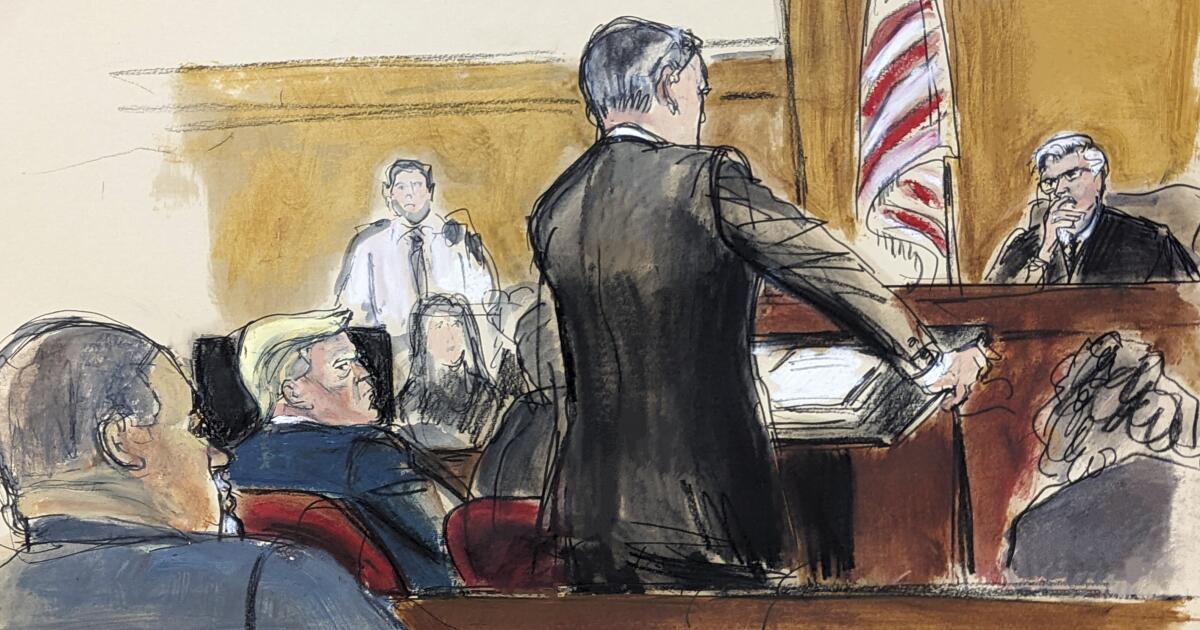
Judge Juan M. Merchan has, in his soft-spoken but hard-nosed way, told Donald Trump something no other court has over the course of his many civil and criminal cases: He’s down to his last chance.
Merchan ruled Tuesday on contempt motions brought by the Manhattan district attorney’s office in response to Trump’s serial violation of a gag order prohibiting public statements about witnesses, jurors and others connected to the hush money case. The judge was calm, straightforward and utterly undramatic in announcing that he had found violations in nine of the 10 instances cited by prosecutors.
It was Merchan’s written order that contained the thunder. It forcefully and convincingly rejected Trump’s arguments that the order permits him to respond to supposed political attacks or excludes reposting of others’ social media comments. (It was when Trump lawyer Todd Blanche made those arguments in court that Merchan ominously warned he was in danger of “losing all credibility.”)
Merchan really lowers the boom near the end of the written ruling, advising Trump in no uncertain terms that if he insists on forcing the judge’s hand, he is prepared to put him in jail.
“Defendant is hereby warned,” Merchan wrote, “that the Court will not tolerate continued willful violations of its lawful orders and that if necessary and appropriate under the circumstances, it will impose an incarceratory punishment.”
That’s appropriate given the limited legal tools at Merchan’s disposal.
Other courts, for example the federal court handling the Jan. 6 case, can take several intermediate steps to manage a recalcitrant defendant. And those courts have done back flips to avoid putting Trump in jail, being very aware of the political cyclone it could occasion.
But Merchan’s court is more constrained. New York law essentially gives him the option of a fine of up to $1,000 for each act of contempt or a jail term of up to 30 days.
And as Merchan wrote, “While $1,000 may suffice in most instances to protect the dignity of the judicial system, to compel respect for its mandates and to punish the offender for disobeying a court order,” it doesn’t do the trick in the case of a defendant as wealthy as Trump.
Given this dilemma, Merchan could go through several rounds of thousand-dollar fines. But he left it to Trump to decide whether to play the martyr and go to jail for political reasons.
If the former president is determined to continue on his defiant course, Merchan’s unavoidable responsibility will be to have him ushered to a jail cell, beginning perhaps with a short stay in the holding cell at the back of his court. The judge must recognize that his credibility and that of the proceedings are at risk if he lets Trump continue to thumb his nose at his orders without more serious consequences.
Merchan has already scheduled a hearing Thursday to adjudicate four additional alleged instances of contempt on Trump’s part. Don’t expect him to put Trump in custody for those: They occurred before he had issued the clear warning in Tuesday’s opinion.
But if Merchan does find those to be more willful violations of his orders, they look to be the last he will tolerate without a dramatic escalation of the penalties. The lines are drawn; Trump is almost out of chances and knows it.
The defendant may nevertheless dare Merchan, as he did another judge threatening to jail him, to “make my day.” But he had better not be bluffing, because he’s up against a judge who isn’t.
Harry Litman is the host of the “Talking Feds” podcast and the Talking San Diego speaker series. @harrylitman

Politics
NY v Trump: Judge to consider defense motion to dismiss after prosecution rests case
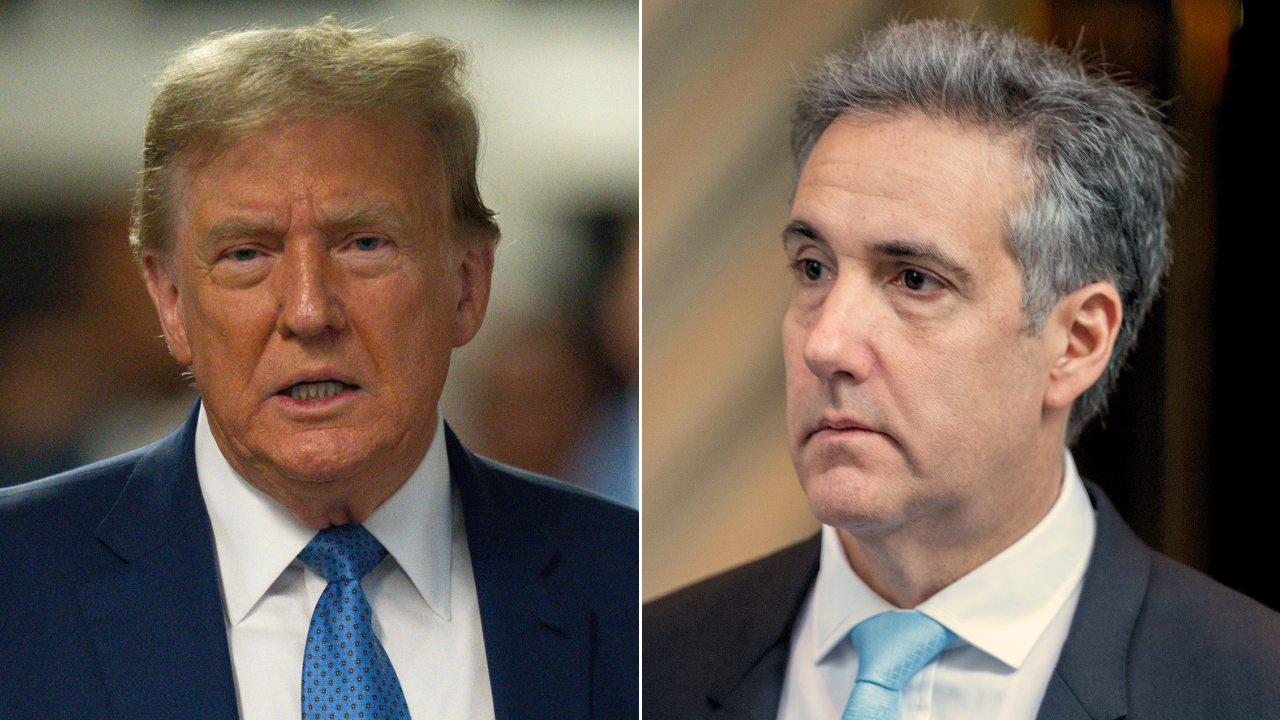
Judge Juan Merchan could rule Tuesday morning on Trump defense attorneys’ motion to dismiss the case against the former president altogether after the prosecution rested its case following days of testimony from its star witness, Michael Cohen.
Manhattan District Attorney Alvin Bragg charged Trump with 34 counts of falsifying business records in the first degree. Prosecutors must prove beyond a reasonable doubt that Trump falsified business records 34 times to conceal a $130,000 payment to Stormy Daniels, a pornographic performer, in the lead-up to the 2016 election to silence her about an alleged affair with Trump in 2006.
Trump has pleaded not guilty to all charges and maintains his innocence.
This courtroom sketch shows Michael Cohen being questioned by prosecutor Susan Hoffinger on redirect during former President Trump’s criminal trial in New York City on May 20, 2024. (Reuters/Jane Rosenberg)
TRUMP SLAMS NY COURT SYSTEM, BOASTS HE’S GOING ‘TO WIN’ EMPIRE STATE
After Michael Cohen’s fourth day of testimony was complete, the prosecution rested its case, and Trump defense attorneys called two of their own witnesses.
At the end of court for the day, Trump defense attorney Todd Blanche asked for an immediate order of dismissal, saying there is “no evidence” that the filings or business records at the center of the case were false, that there are “absolutely no false business filings.”
Blanche said there is no dispute that Cohen acted as a personal attorney for Trump in 2017 and that there is no evidence or intent by Trump to mislead, hide or falsify business records.
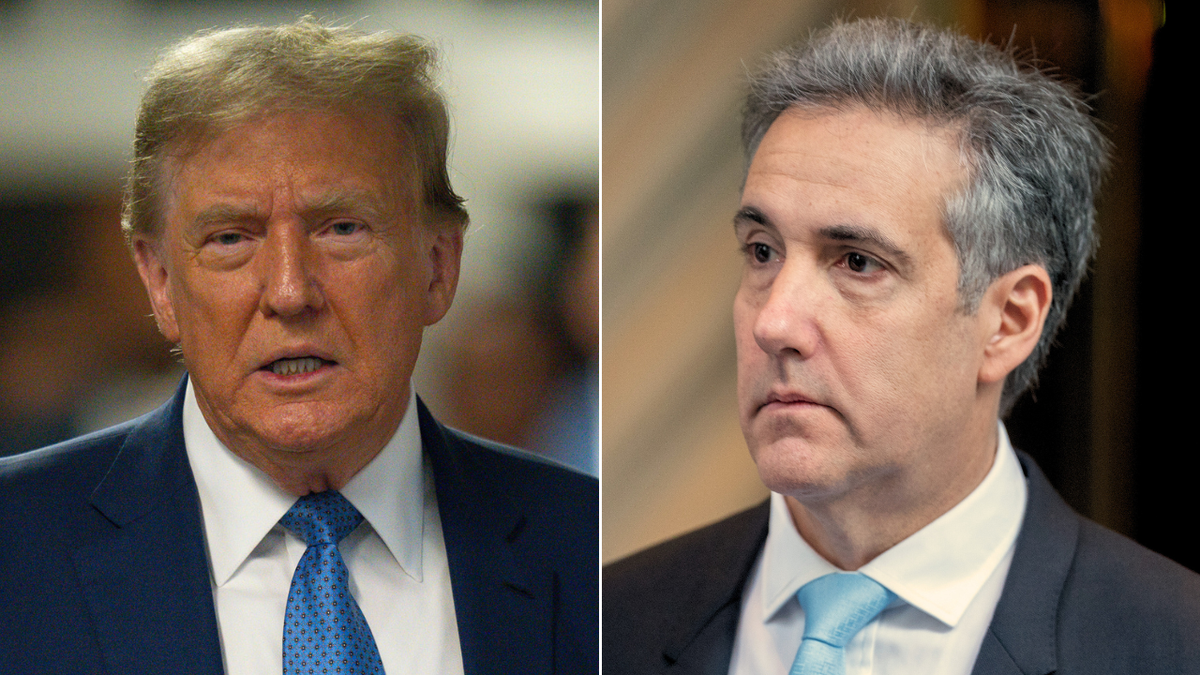
Donald Trump and Michael Cohen (Getty Images)
Blanche said there would be records of intent to defraud, if they existed, and that there were no other crimes being covered up. He said there was no evidence of anyone thinking of a campaign finance charge when the payment was made to Stormy Daniels or when Cohen and then-Trump Organization CFO Allen Weisselberg developed the repayment plan.
Blanche said Trump paid Cohen a $35,000 “monthly retainer,” which is what the records state, and said there is no evidence from any witness to prove any criminal intent.
Reflecting on the prosecution’s case, Blanche pointed to the alleged “catch and kill” strategy used to prevent a “demonstrably false” story a Trump Tower doorman had about Trump from being published.
“How on Earth is keeping a false story from voters criminal?” Blanche asked, adding it was “not a catch and kill and certainly not a criminal catch and kill.”
NY V TRUMP: MICHAEL COHEN ADMITS TO STEALING TENS OF THOUSANDS FROM FORMER PRESIDENT’S BUSINESS
“There is no way the court should let this case go to the jury with Mr. Cohen’s testimony,” Blanche said, adding that Cohen has lied under oath in the past and during the current criminal trial in Merchan’s courtroom.
Merchan asked Blanche if he should “find Mr. Cohen not credible by a matter of law,” to which Blanche said “yes.”
“So, you want me to take it out of the jury’s hands?” Merchan asked, with Blanche responding that Cohen’s entire testimony should not be considered by the jury.
Merchan told Blanche that if Cohen’s “lies” were “irrefutable,” then he would be able to convince the jury of that.
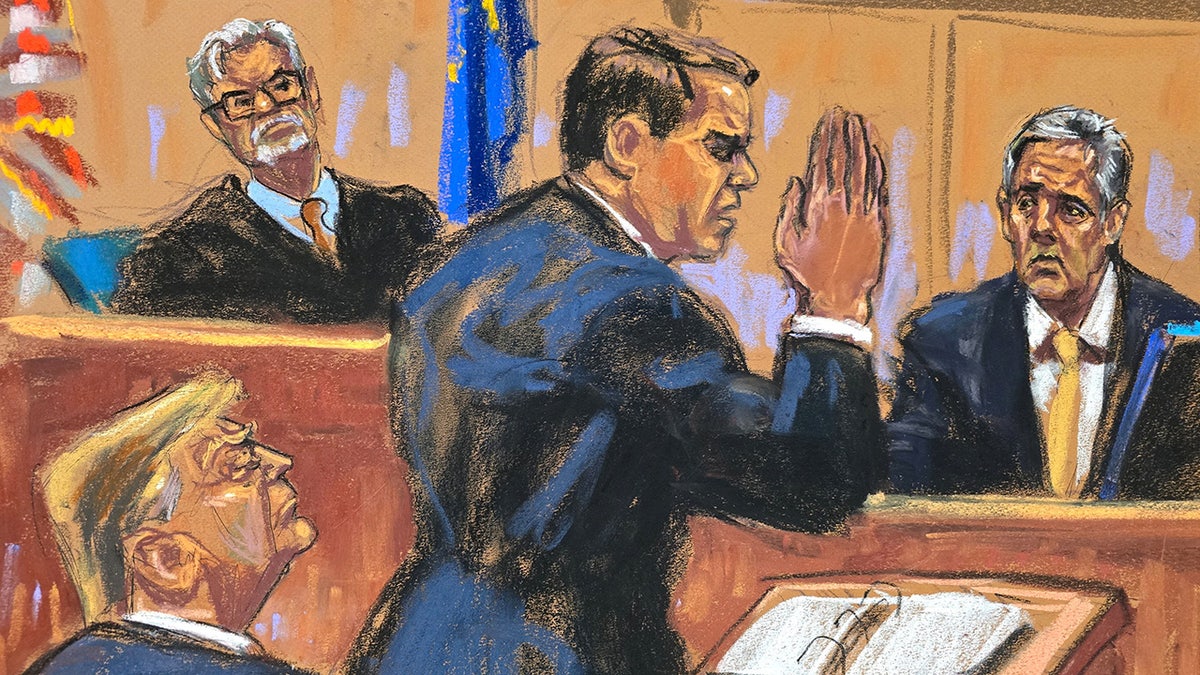
Michael Cohen is cross-examined by defense lawyer Todd Blanche during former President Trump’s criminal trial in New York City on May 16, 2024, as shown in this courtroom sketch. (Reuters/Jane Rosenberg)
The prosecution then argued that under the New York state falsifying business records statute, anyone “causing” the falsified records can be punished.
“As a matter of law, it is sufficient, more than sufficient, that the defendant set in motion the sequence of events leading to the falsification of business records,” prosecutor Matthew Colangelo argued.
Merchan said he would reserve a ruling on whether to dismiss the case before the jury can deliberate.
Before the afternoon development, Trump defense attorneys on Monday continued to cross-examine Cohen, Trump’s former lawyer and self-described “fixer,” who testified that he stole $30,000 from the Trump Organization.
Cohen said the move was “almost like self-help” because he was “angry” about his bonus being reduced.
Cohen testified that he was supposed to pay the $30,000 he withdrew from the bank to a tech company, Red Finch, in addition to $20,000 he had already paid them. Instead, he failed to make the payment, collected the $30,000 for himself, and led the Trump Organization to believe he had paid the total.
Prosecutors then briefly questioned Cohen on redirect, where he said that he had “more than 20” conversations with Trump about Stormy Daniels in 2016 and that Trump “no doubt” had signed off on the hush money payment for Daniels.
NY V TRUMP: MICHAEL COHEN TESTIFIES HE’S CONSIDERING CONGRESSIONAL RUN
Cohen has testified that he personally made the $130,000 payment to Daniels using a home equity line of credit in an effort to conceal the payment from his wife. Cohen said he did this because Trump told him to “handle it” and prevent a negative story from coming out ahead of the 2016 election.
Cohen testified that he was “reimbursed $420,000” for the $130,000 he paid to Daniels. Cohen said Weisselberg suggested he “gross up” the payments and that Trump knew the details of that reimbursement.
Last week, the prosecution presented Cohen with 11 checks totaling $420,000. Cohen confirmed that they were all received and deposited. The checks had a description of “retainer,” which Cohen said was false.
But Monday, the prosecution rested its case against the former president.
Trump defense attorneys called two witnesses: paralegal Daniel Sitko and a former legal adviser to Michael Cohen, Robert Costello.
Sitko testified that Cohen and Costello had 75 phone calls in which Cohen told Costello that Trump knew nothing about the payment to Stormy Daniels.
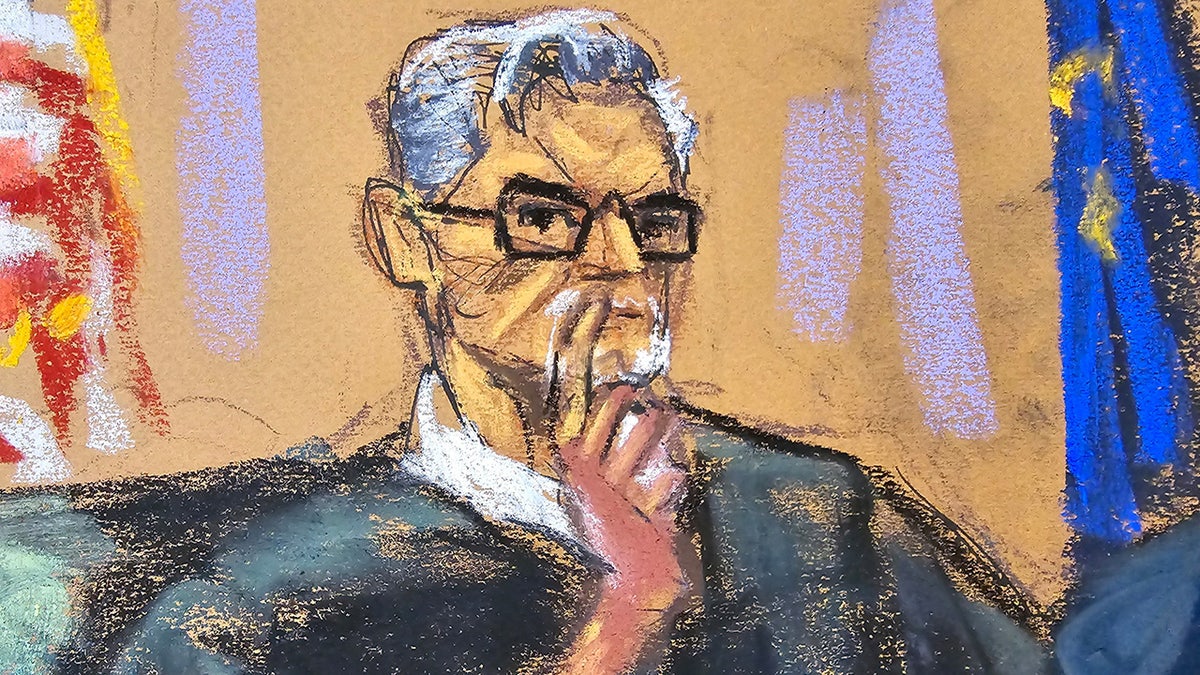
This courtroom sketch shows presiding Judge Juan Merchan during former President Trump’s criminal trial in New York City on May 14, 2024. (Reuters/Jane Rosenberg)
Costello took the stand and testified that Cohen told him “numerous times” that Trump knew nothing of the payments, recalling Cohen telling him: “I swear to God, Bob, I don’t have anything on Donald Trump.”
Cohen, earlier in the day, recalled that he told numerous people that Trump knew nothing about the payment.
COHEN’S BOMBSHELL ADMISSION COULD LEAD TO HUNG JURY, IF NOT ACQUITTAL: EXPERT
But during his testimony, Costello clashed with Merchan. Costello audibly and visibly responded with disapproval to Merchan sustaining multiple objections from the prosecution concerning his testimony about Cohen.
“I’m sorry?” Merchan said to Costello after one reaction before clearing the courtroom.
“I want to discuss proper decorum in my courtroom,” Merchan said after the jury left. “You don’t say strike it, because I’m the only one who can strike it.”
Merchan directed Costello, a former federal prosecutor, not to respond, roll his eyes or react in any way to his rulings.
Before the jury returned to the courtroom, Costello looked at Merchan, prompting the judge to ask, “Are you staring me down?”
Prosecutor Susan Hoffinger was leading the cross-examination of Costello. She said she had approximately 45 minutes left for questioning.
The defense said they won’t call any other witnesses, signaling that Trump won’t take the stand in his own defense.
Closing arguments are currently set for next Tuesday.
Politics
Feds collected DNA from 1.5 million migrants in under four years, report finds
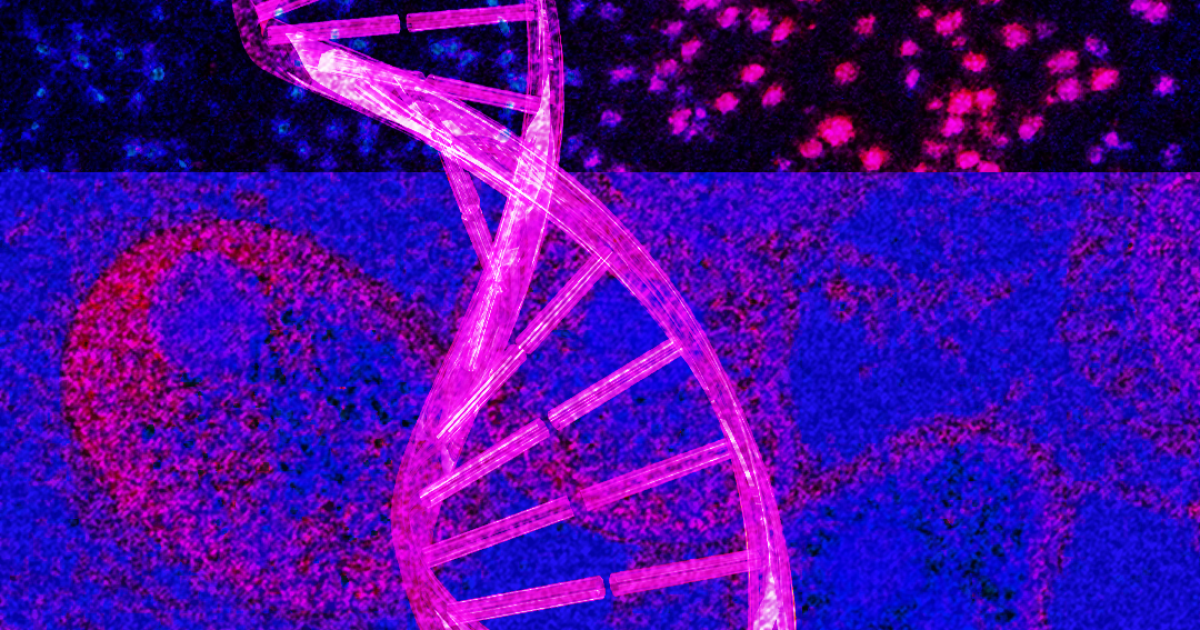
Routine collection of immigrants’ DNA by federal authorities has ballooned since 2020, with a 50-fold spike in the number of samples held in a national database of the sensitive genetic information, according to a report released Tuesday.
In nearly four years, the DNA database — which is shared with law enforcement agencies nationwide — added more than 1.5 million noncitizen profiles, according to the Georgetown Law Center on Privacy & Technology. That compares with about 30,000 total samples obtained since 2005, when Congress authorized DNA collection by federal immigration authorities, the study found.
The center said the sharp rise raises questions about whether immigrants’ privacy rights are being violated as well as the overall constitutionality of the program.
DNA samples are routinely taken by immigration agents “without any of the procedural rules that police are supposed to follow before they can take a person’s DNA,” the center said in the report.
The Department of Homeland Security didn’t immediately respond to a request for comment.
The increase is attributed to a 2020 Department of Justice rule change instituted by the Trump administration that requires the Department of Homeland Security to collect DNA from nearly all people detained by agents at the border and inside the country.
After agents collect DNA, the samples are sent to the FBI for testing and inclusion in a federal database called the Combined DNA Index System. Those profiles are labeled “offender,” and become indefinitely searchable by law enforcement nationwide, according to the report. The database, which was introduced in 1998, has 22 million total DNA profiles.
In collecting the DNA, immigration agents don’t need probable cause or judicial warrants that apply in the criminal justice context, the report states, though police use the data for criminal investigations. Georgetown researchers analyzed the legality of the program and argue it is unconstitutional because it violates the 4th Amendment.
If Homeland Security agents continue collecting DNA at the rate the agency projects, one-third of the profiles in the federal database used for criminal investigations will be from migrants and immigrants, researchers projected. That’s based on the Department of Justice’s prediction that immigration agents would submit 748,000 samples per year.
“The federal government is amassing a huge trove of DNA, starting with a racialized, often traumatized, and politically powerless group: noncitizens,” the report states. “And it is using the federal agency that operates with the fewest practical constraints and least oversight — the Department of Homeland Security (DHS) — to do it.”
In its 2024 fiscal year budget request, the FBI sought to nearly double its budget of $57 million for processing DNA samples, citing the need to process samples collected by Homeland Security agents.
As part of a House appropriations hearing in April 2023, FBI Director Christopher Wray submitted a statement acknowledging the agency faced a backlog of 650,000 samples and that the addition of noncitizens’ DNA had “created massive budget and personnel shortfalls.”
Researchers interviewed several people who said they were unaware their DNA had been collected, though internal policies stipulate that agents must inform people beforehand. Others said they submitted to a cheek swab under threat of criminal prosecution if they didn’t comply.
In response to a June 2022 email from the Georgetown center researcher, Valentina Seeley, an Immigration and Customs Enforcement official, said those who don’t comply with DNA sampling are warned of consequences “and subsequently referred for criminal prosecution” if noncompliance persists.
Stevie Glaberson, one of the report authors, said that regardless of whether immigration agents adequately inform people in their custody, the process is coercive.
“Even when people know what’s happening, they’re terrified to ask questions, they’re terrified to object, they’re terrified to refuse,” she said.
Politics
Video: Biden Says Israeli Military Assault in Gaza Is ‘Not Genocide’

new video loaded: Biden Says Israeli Military Assault in Gaza Is ‘Not Genocide’
transcript
transcript
Biden Says Israeli Military Assault in Gaza Is ‘Not Genocide’
At a celebration of Jewish Heritage Month, President Biden pledged support to Israel and condemned a decision by the prosecutor for the International Criminal Court to seek arrest warrants for top Israeli officials.
-
We stand with Israel to take out Sinwar and the rest of the butchers of Hamas. We want Hamas defeated. We’ll work with Israel to make that happen. And consistent with Jewish values and compassion, kindness and dignity and human life, my team also is providing critical humanitarian assistance to help innocent Palestinian civilians who are suffering greatly because of the war Hamas, Hamas has unleashed. [clapping] Its heartbreaking. Let me be clear. We reject the I.C.C.’s application for arrest warrants against Israeli leaders. [cheering] Whatever these warrants may imply, there is no equivalence between Israel and Hamas, and it’s clear Israel wants to do all it can to ensure civilian protection. But let me be clear. Contrary to allegations against Israel made by the International Court of Justice, what’s happening is not genocide. We reject that. [cheering]
Recent episodes in Israel-Hamas War
-

 News1 week ago
News1 week agoSkeletal remains found almost 40 years ago identified as woman who disappeared in 1968
-

 Movie Reviews1 week ago
Movie Reviews1 week ago“Kingdom of the Planet of the Apes”: Disney's New Kingdom is Far From Magical (Movie Review)
-

 World1 week ago
World1 week agoIndia Lok Sabha election 2024 Phase 4: Who votes and what’s at stake?
-

 World1 week ago
World1 week agoUkraine’s military chief admits ‘difficult situation’ in Kharkiv region
-

 World1 week ago
World1 week agoCatalans vote in crucial regional election for the separatist movement
-

 Politics1 week ago
Politics1 week agoNorth Dakota gov, former presidential candidate Doug Burgum front and center at Trump New Jersey rally
-

 Movie Reviews1 week ago
Movie Reviews1 week agoAavesham Movie Review
-

 News1 week ago
News1 week agoTrump, Reciting Songs And Praising Cannibals, Draws Yawns And Raises Eyebrows
